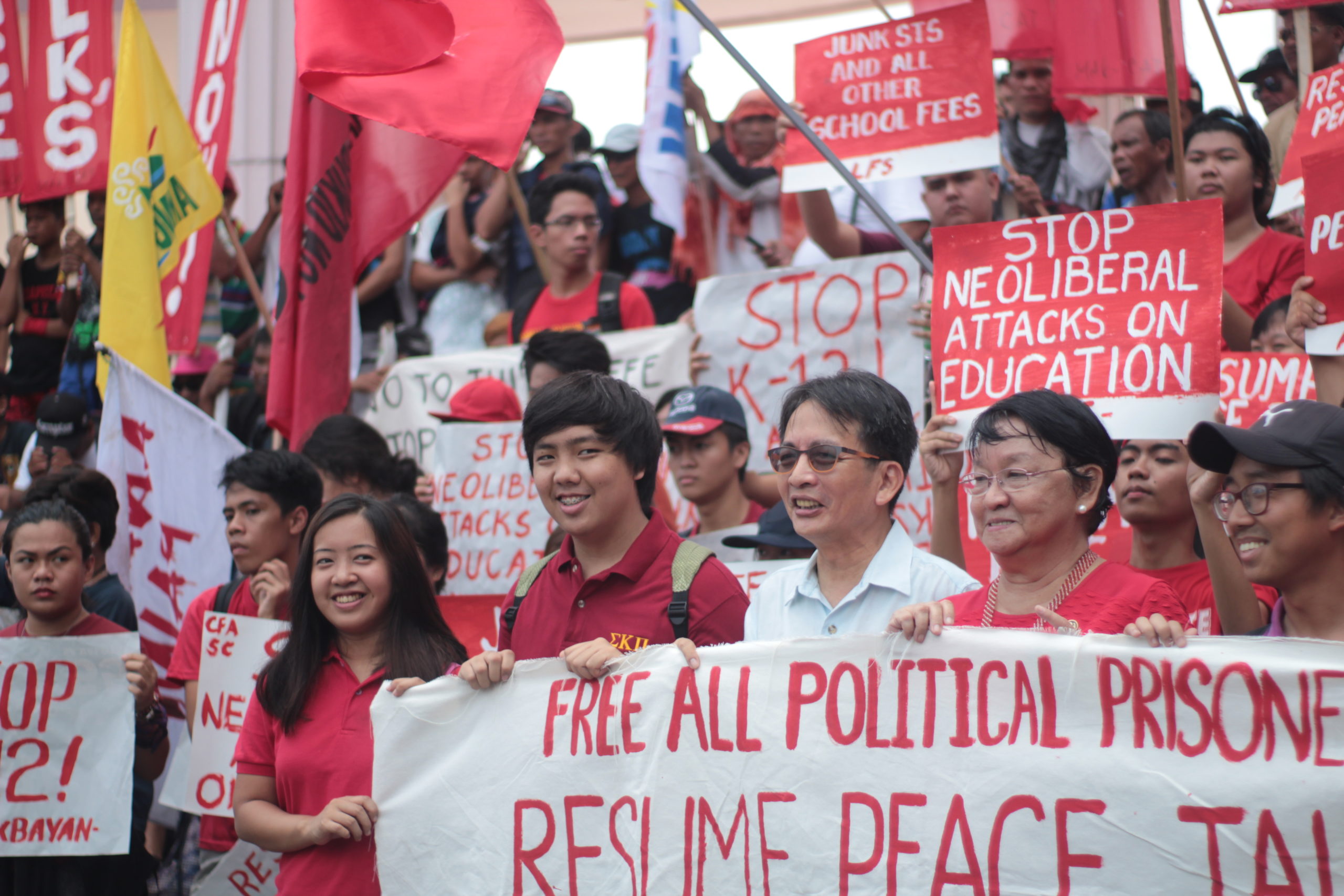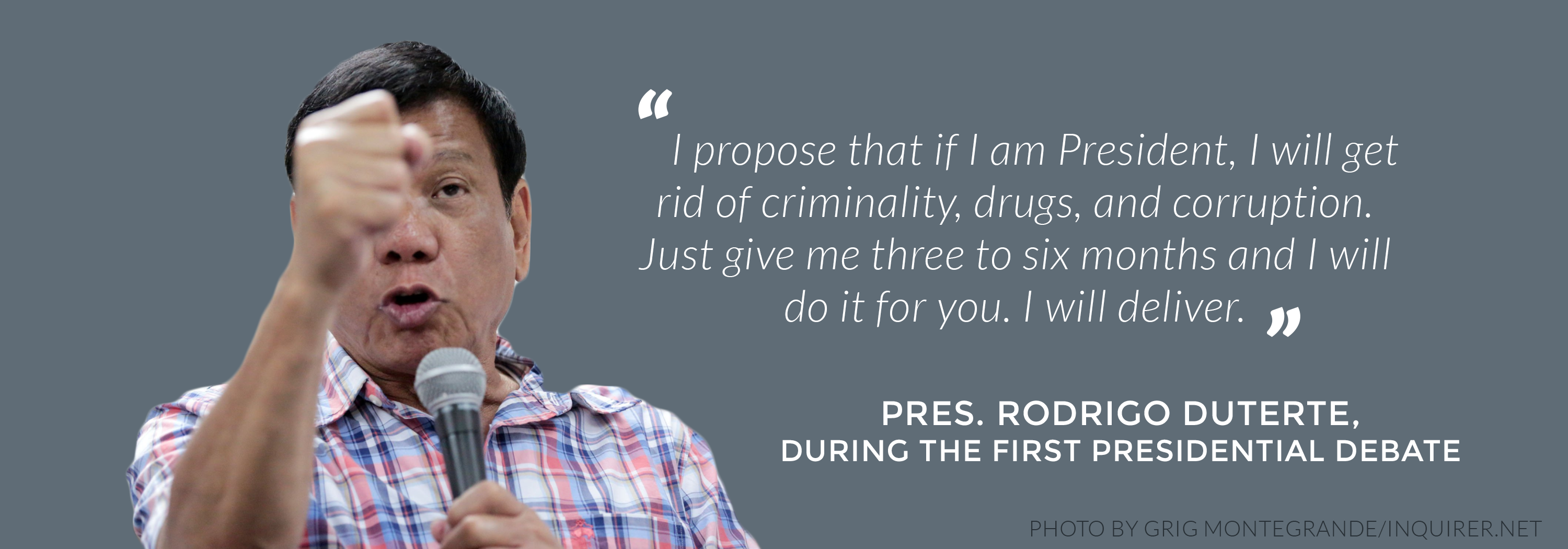BY TESSA BARRE
A president’s first State of the Nation Address (SONA) is expected to acknowledge the pressing issues of the times, sweetened with promises of change.
For President Rodrigo “Rody” Duterte, the promise of change is written in both ink and blood, on both paper and cardboard.
Duterte devoted his first SONA to reaffirming several of his campaign promises, with an expected emphasis on his controversial war on illegal drugs and crime.
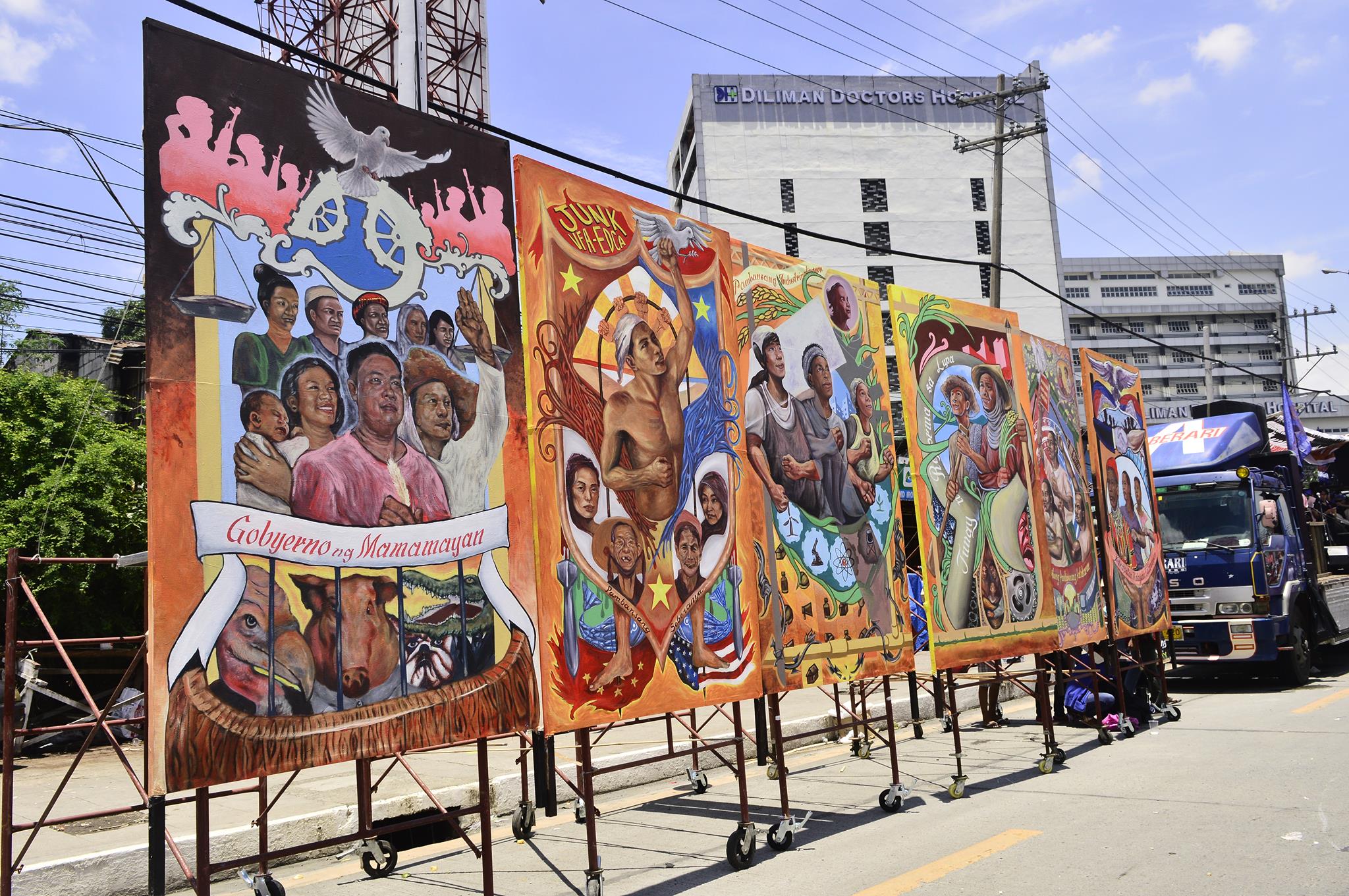
Conflicting views: human rights, media freedom
Promising to end the country’s drug problem in three to six months, Duterte announced the arrest of about 3,600 individuals suspected of being involved in the illegal drugs business since the beginning of July, while around 120,000 “drug dependents” have surrendered, although he did not specify the timeline of these arrests and surrenders.
Yet Rappler shows otherwise — the Philippine National Police reported the arrest of only 3,005 drug suspects and the surrender of 93,000 alleged drug addicts from July 1 to 20.
Given the obscurity of these statistics and their sources, media outlets and human rights groups will have to reconcile their independent tallies of killings related to Duterte’s war on drugs.
His bold pronouncements on extrajudicial killings, the rule of law and human rights also caught public attention.
“With this, my administration shall be sensitive to the State’s obligations to promote, and protect, fulfill the human rights of our citizens […] even as the rule of law shall at all times prevail,” Duterte said.
He would later add: “Human rights must work to uplift human dignity. But human rights cannot be used as a shield or excuse to destroy the country,” as a response to criticisms on the drastic increase in extrajudicial killings since his inauguration.
His sentiments toward the media are also worth noting.
“This government does not condone violence and repression of media,” Duterte said. “The bona fide media has always been our partner for change.”
“Let me make this appeal to you: ‘If we cannot, as yet, love one another, then in God’s name, let us not hate each other too much,’ so it was said,” Duterte said.
Days before the SONA, the president signed an Executive Order (EO) on Freedom of Information (FOI), granting access to all public documents and records of government offices under the Executive branch. A task force on media killings is also in the works.
These decisions seem to counter his previous dealings with the press, having blamed “corrupt journalists” for media killings.
“There is still corruption in your side,” Duterte said in a press conference last June. “They are mostly like that, because if you are journalist following the ethics, no one will harm you as long as what you report is true.”
Consistent reforms: peace talks, transpo crisis, federalism
Duterte may contradict himself on issues concerning human rights, yet his stances on the resumption of peace talks, the transportation crisis and his proposed shift to federalism remain consistent.
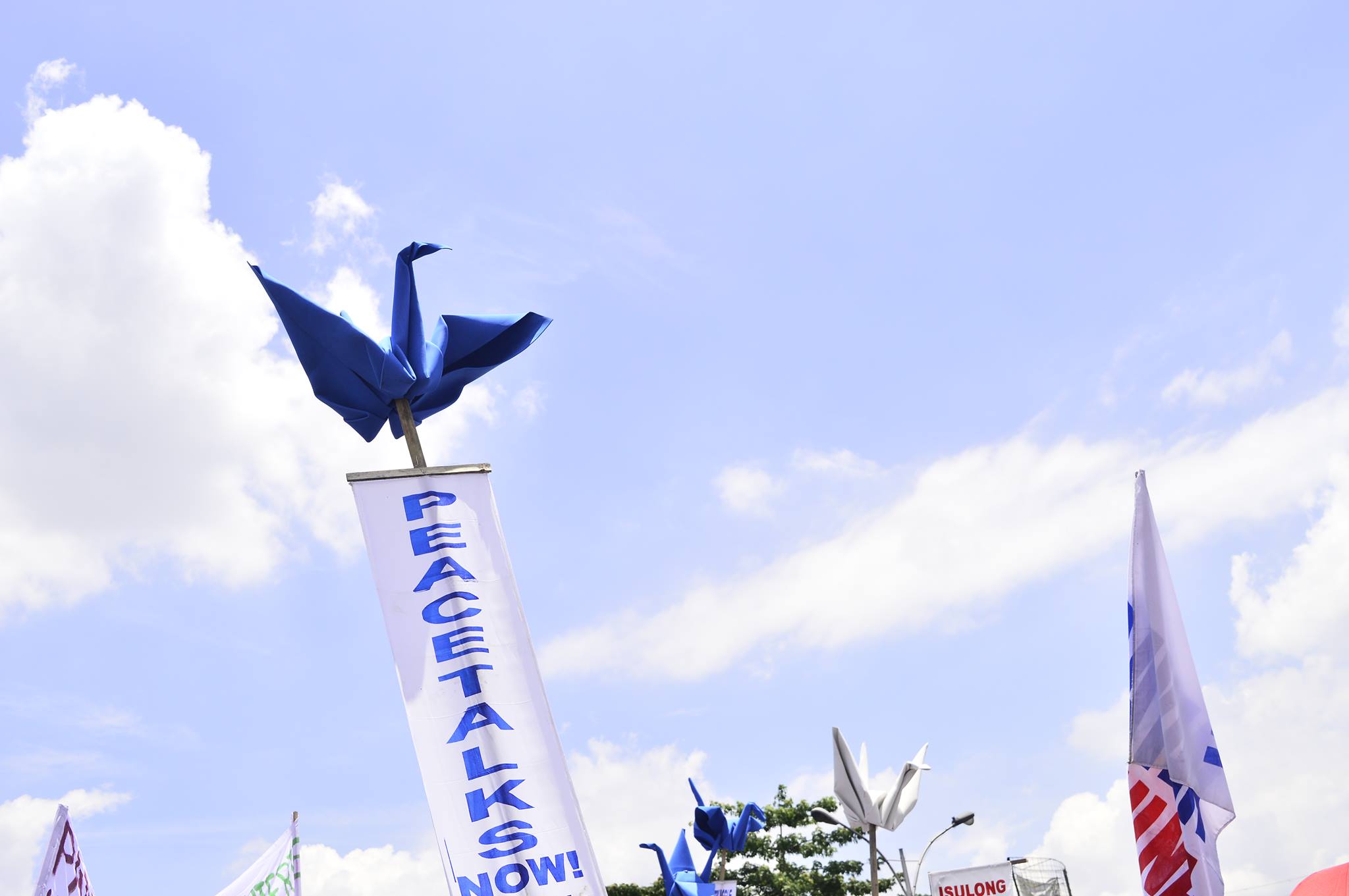
The President declared a unilateral ceasefire with the Communist Party of the Philippines (CPP)-National Democratic Front (NDF) and its armed wing, the New People’s Army (NPA), to provide an environment conducive for the peace talks.
“Let me make this appeal to you: ‘If we cannot, as yet, love one another, then in God’s name, let us not hate each other too much,’ so it was said,” Duterte said.
Even before his inauguration, government negotiators already met with CPP-NDF representatives in Norway in mid-June. The first formal negotiations in Norway are expected to be held on August 20-27.
On June 17, Duterte gathered the leaders of Muslim secessionist groups Moro National Liberation Front (MNLF) and Moro International Liberation Front (MILF) in a “brother to brother” meeting.
Both groups expressed their support for Duterte’s federalism campaign.
Duterte’s SONA would echo this preference for a federal system under a parliamentary form of government.
“You know my advice to you is maintain a federal system, a parliament, but be sure to have a president,” he said.
Duterte also took notice of the heavy traffic congestion that continues to plague the country’s capital.
He suggested the revival of the Pasig River Ferry System’s operations to decongest Metro Manila and its roads. The ferry system is currently operating under the Metro Manila Development Authority (MMDA).
In addition to this, Duterte proposed maximizing existing roads, mapping out alternative routes with the help of local government units and intensifying anti-colorum operations.
Missing: contractualization, agrarian reform land distribution
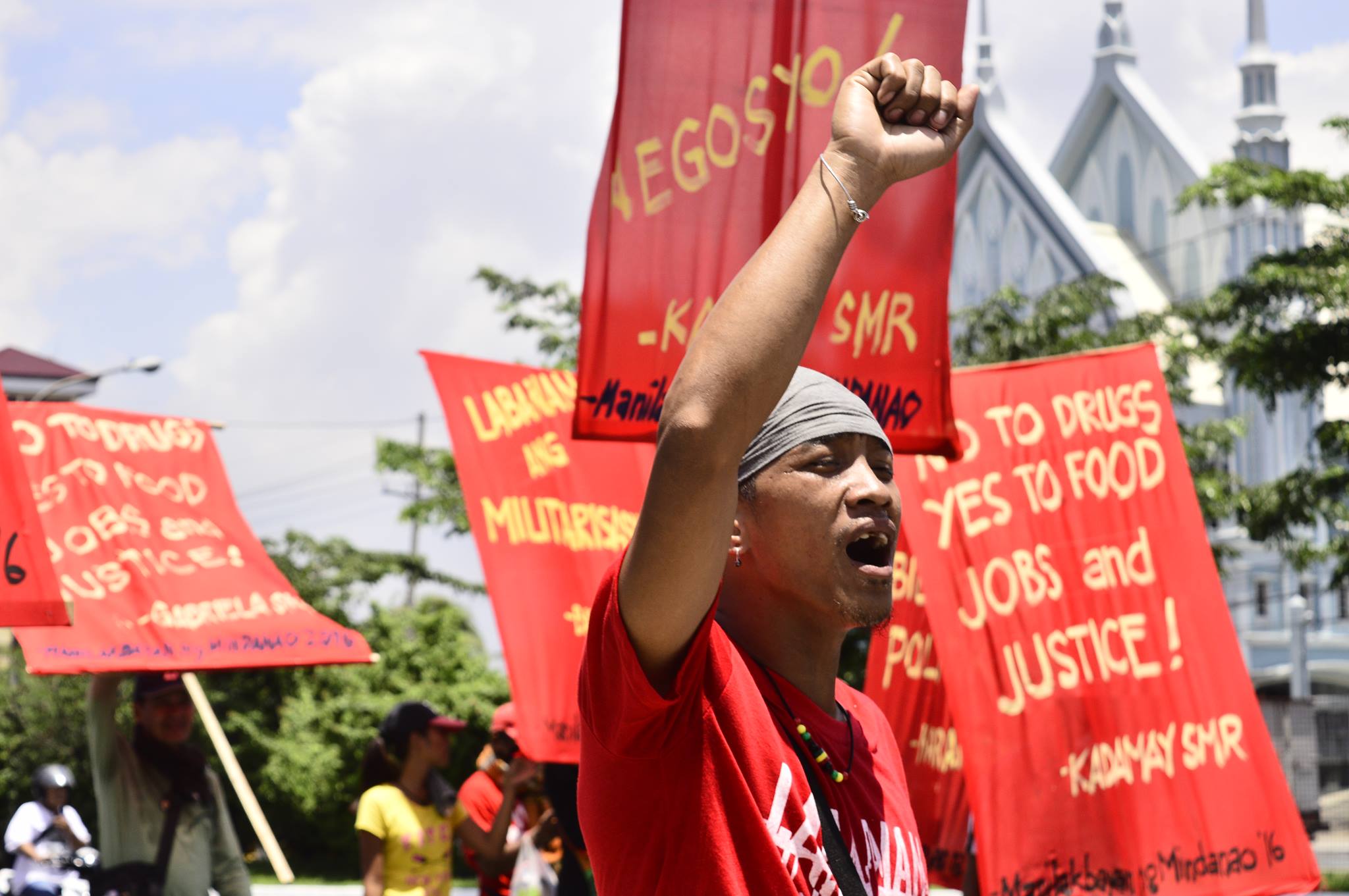
While contractualization, agrarian reform and education were not discussed at length during the entire address, earlier statements made by Duterte and his Cabinet members have left the public several promises to watch out for.
In relation to Duterte’s plan of abolishing contractualization, Labor Secretary Silvestre Bello is considering requiring companies to regularize at least eighty percent of their employees.
Free irrigation and the distribution of land to farmers were also part of Duterte’s campaign platform, which current Agriculture Secretary Manny Piñol promised would be fulfilled by 2017.
The President had earlier mentioned doubling teachers’ salaries and building sufficient classrooms. In his SONA, he said the government will increase its spending on education.
Vox populi
For the first time, thousands of rallyists were able to march close to the Batasang Pambansa Complex in Quezon City with no effigy to burn.
Jeffrey Atienza, 26, a union member and participant of the SONA mobilization, believes Duterte has nothing to do with the ‘cardboard justice’ against alleged drug users and pushers face.
“Sana huwag puro salita,” she said. “Sana gumawa siya.”
“Si Pangulong Duterte ay isang lawyer (President Duterte is a lawyer),” Atienza said. “Alam niya kung ano ang batas [at] alam niya kung ano ang due process (He knows the law and is familiar about due process).”
Atienza is also optimistic about the administration’s plan on regularizing at least 80 percent of company employees.
“Siguro okay na ‘yun kesa marami yung kontraktwal (Maybe it’s better that way than having so many contractuals),” Atienza said, himself a former contractual worker. “Pero dapat nating malaman na [kailangang] tigilan na yung kontraktwal (But we should be aware that there is a need to end contractualization).”
For Rubilyn Litaw, 55, a member of an ecumenical human rights organization, the previous administration had been lax in sustaining peace efforts in Mindanao.
However, she has hopes for the new administration: “Meron siyang sinseridad sa pagsasagawa ng peace talks (He is sincere in his call for the resumption of peace talks).”
Camilo Asunan, 43, a Matigsalug farmer from Bukidnon, is more skeptical. He and his family have been living in an evacuation center for over a year now due to growing military presence in their community.
Though Asunan felt positively about Duterte’s proclamation of a unilateral ceasefire, he said the President could have done more than just the suspension of military operations against communist fighters.
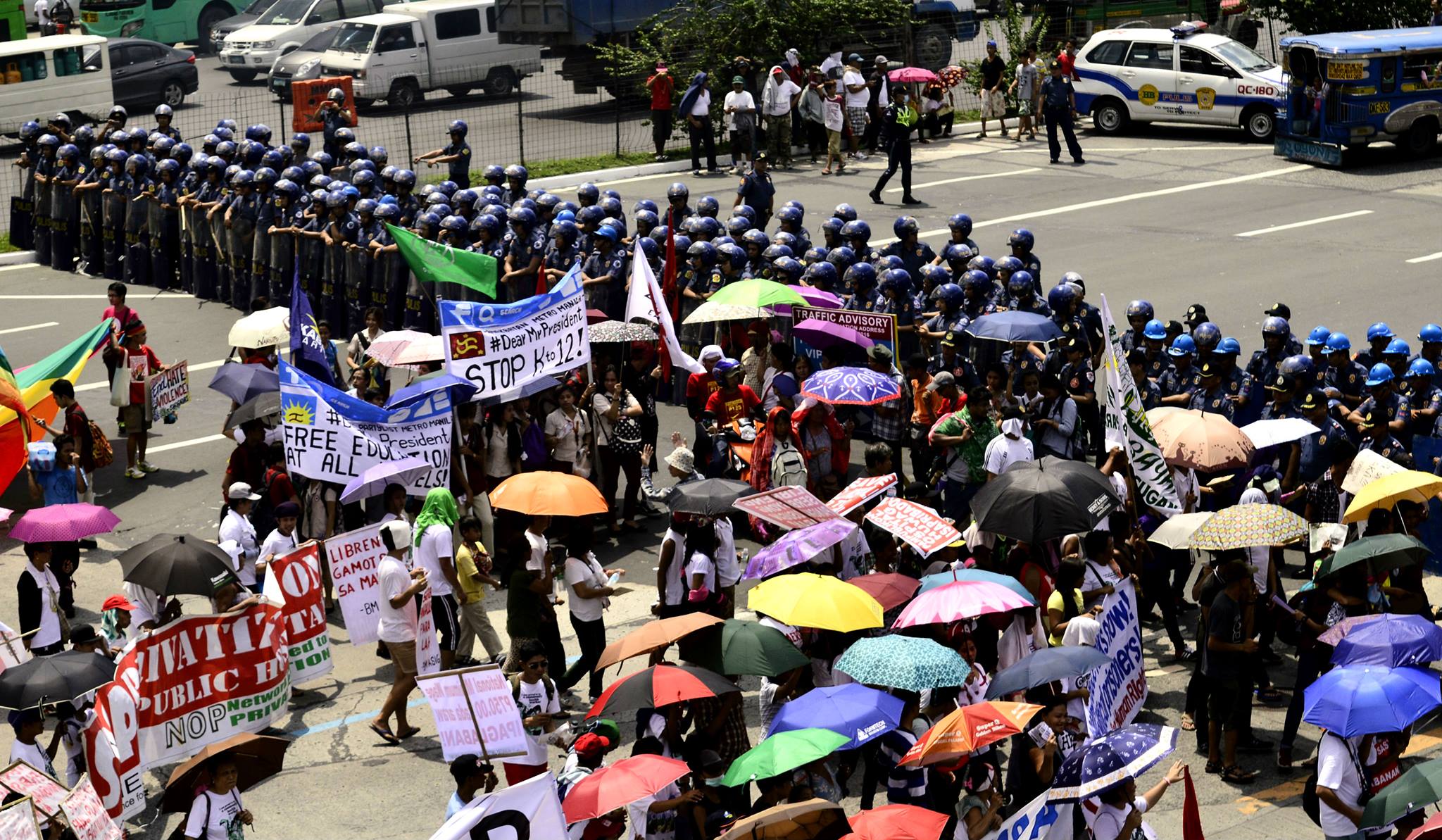
“Pero hindi pinaalis ‘yung sundalo (But the soldiers have not left),” Asunan said. “Dapat ceasefire tapos paalisin din yung mga sundalo sa komunidad para walang gulo (After the ceasefire, the soldiers should leave the community so we can have peace).”
Lorna Carungay, 42, a member of a farmer’s association in Cavite, said she expects a genuine agrarian reform program to be implemented under the new administration.
Falling prey to land-grabbing in their community, Carungay said she and her fellow farmers were threatened with trumped up charges like coercion and possession of deadly weapons.
“Sana maipamahagi na yung mga lupa (I hope they distribute the lands),” she said. “Ang gusto talaga namin, maisulong na talaga yung Genuine Agrarian Reform Bill (What we really want is the passage of the Genuine Agrarian Reform Bill).”
In the end, Carungay challenges the president to put words into action.
“Sana huwag puro salita (Words are not enough),” she said. “Sana gumawa siya (He should act).” — With reports from Misty Pegram and Alyana Vinluan


